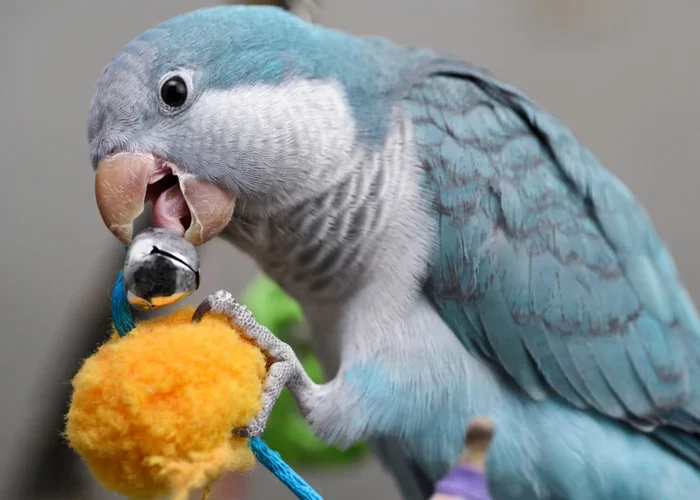How to Help a Pet Bird with Behavioral Problems: Expert Tips and Solutions
- 1. Understanding Pet Bird Behavior
- 2. Common Behavioral Problems in Pet Birds
- 3. Why Pet Birds Develop Behavioral Issues
- 4. Training Techniques to Address Behavioral Issues
- 5. How to Create a Positive Environment for Your Bird
- 6. When to Seek Professional Help
- 7. Product Recommendations for Bird Behavioral Help
1. Understanding Pet Bird Behavior
Pet bird behavior is a reflection of their environment, physical health, and emotional state. Just like humans, birds can experience stress, boredom, and discomfort, which can result in behavioral problems. Understanding your bird's natural instincts and needs is crucial in helping resolve any behavioral issues.
Birds are highly intelligent and social creatures that require mental stimulation, physical exercise, and positive social interaction to thrive. If these needs are unmet, they can begin to display problematic behaviors.
2. Common Behavioral Problems in Pet Birds
Common behavioral problems in pet birds include excessive screaming, feather plucking, biting, aggression, and destructive chewing. These issues are often symptoms of an underlying problem such as stress, lack of stimulation, or health concerns.
For example, a parrot that is left alone for long periods might begin screaming as a form of attention-seeking behavior. Similarly, birds that are kept in small cages without enough space for exercise may begin to chew on bars or their feathers out of frustration.
3. Why Pet Birds Develop Behavioral Issues
Behavioral issues in birds often arise from a lack of environmental enrichment, inadequate socialization, or poor diet. Birds that feel threatened or bored may exhibit aggression or destructive behavior. Additionally, some birds may develop these behaviors due to physical ailments or past trauma, particularly if they were not properly socialized or cared for in their early years.
It's important to observe your bird's daily routine and make adjustments as needed to ensure that they feel safe, loved, and mentally stimulated.
4. Training Techniques to Address Behavioral Issues
Training is one of the most effective ways to manage behavioral problems in pet birds. Positive reinforcement is a highly successful training technique that involves rewarding desirable behaviors with treats or praise. By consistently rewarding good behavior and redirecting negative behavior, you can help your bird learn better habits.
Start by teaching basic commands, such as “step up” or “come here.” This helps establish a bond with your bird while reinforcing the idea of cooperation and trust. Avoid punishment-based training, as it can lead to fear and further behavioral problems.
5. How to Create a Positive Environment for Your Bird
Creating a positive environment is key to preventing and resolving behavioral issues in pet birds. Make sure your bird has plenty of space to move around and exercise. Provide a variety of toys to keep them mentally engaged, and ensure that they have opportunities for social interaction, whether it's with you or other birds.
Additionally, a proper diet is essential. A balanced diet with fresh fruits, vegetables, and high-quality bird pellets can greatly affect your bird's mood and behavior. A healthy bird is a happy bird, so take care of their nutritional needs to help maintain positive behavior.
6. When to Seek Professional Help
If your bird's behavioral problems persist or escalate despite your best efforts, it may be time to seek professional help. A certified avian veterinarian or a bird behavior consultant can assess your bird’s physical health and provide specific training advice tailored to your bird’s needs.
Seeking professional guidance can prevent your bird’s behavior from worsening and help you build a stronger bond with your pet.
7. Product Recommendations for Bird Behavioral Help
There are several products available that can assist in managing pet bird behavioral problems. From enrichment toys to calming sprays and training aids, these tools can help address the root causes of behavioral issues and support your bird’s well-being.
At Hidden Brook Veterinary, we recommend high-quality, bird-safe toys and calming products to help reduce stress and encourage positive behavior. Explore our range of bird care products and take the first step toward a happier and healthier pet bird today!










